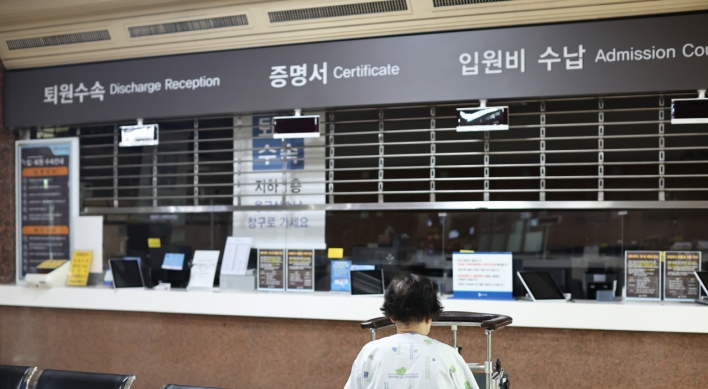DEBALTSEVE, Ukraine (AFP) ― Battles raged Sunday between government forces and pro-Russian rebels for control of a strategic transport hub as the death toll mounted in east Ukraine following the collapse of ceasefire talks.
Intense artillery fire thundered around the Kiev-controlled town of Debaltseve, a key position between the rebel bastions of Donetsk and Lugansk, where insurgent fighters are trying to encircle Ukrainian troops.
A convoy carrying an AFP crew into the beleaguered town ― which once had a population of about 25,000 ― came under fire, blowing out the windows of a bus in the convoy and lightly injuring two people.
Intense artillery fire thundered around the Kiev-controlled town of Debaltseve, a key position between the rebel bastions of Donetsk and Lugansk, where insurgent fighters are trying to encircle Ukrainian troops.
A convoy carrying an AFP crew into the beleaguered town ― which once had a population of about 25,000 ― came under fire, blowing out the windows of a bus in the convoy and lightly injuring two people.

Officials said civilians are being evacuated along the only passable road linking the town to the government side and that conditions are increasingly dire for those left behind.
“People are fleeing because the shelling is non-stop. There’s no water, electricity or heating in the town,” a local police commander Yevgen Lukhaniv told AFP.
Ukrainian military spokesman Volodymyr Polyovyi in Kiev said that “constant battles” were going on around Debaltseve but pledged that government forces would not give up control of the last remaining road into the town.
As the fighting focused there, the number of casualties from clashes around the war-torn region continued to stack up.
Ukraine’s military said 13 soldiers had died and 20 were wounded over the past 24 hours, pushing the military death toll over the past two days to 28.
At least 17 civilians also died in fighting across the war-torn east, government officials and separatist rebels said.
The latest bloodshed came as Ukraine’s warring sides looked further than ever from agreeing to a peace deal after the collapse of truce talks Saturday.
Mediators and Ukrainian representatives accused the separatists of scuppering an agreement despite growing international pressure to defuse a bloody upsurge in fighting that has left scores dead in recent days.
The Organization for Security and Cooperation in Europe, which is involved in the talks along with Russia, said that rebel negotiators in Minsk “were not even prepared to discuss implementation of a ceasefire and withdrawal of heavy weapons.”
Instead the insurgent representatives called for a total revision of an earlier Kremlin-backed peace plan signed in September that has formed the basis for all negotiations, the OSCE said in a statement.
The rebels say they now want to redraw the demarcation line between the two sides to include gains they have made since ripping up a shaky truce and pushing into Ukrainian territory.
The insurgents on Sunday slammed the OSCE for pinning the blame on them and said Kiev needs to halt fire before they will agree to a truce.
Kiev has rebuffed the new rebel demands and says their position has thrown any future peace talks into doubt.
“Unfortunately the peace process is now under threat,” Valeriy Chaly, the deputy head of Ukraine’s presidential administration wrote on his Facebook page.
Western governments and Ukraine have accused Russia of sending regular troops and arms to bolster the rebels and spearhead the latest offensive ― claims Moscow has repeatedly denied.
The rebels, however, are equipped with the heavy weaponry of a regular army, hardware they claim to have captured from fleeing Ukrainian forces.
Russian President Vladimir Putin, French President Francois Hollande and German Chancellor Angela Merkel talked to each other by phone ahead of the peace meeting on Saturday, urging the warring factions to agree a truce in fighting that has left at least 5,100 people dead since April.
Moscow ― suffering the economic impact of harsh Western sanctions over the conflict ― reacted cautiously to the collapse of the talks, saying that it “needed time to evaluate them.”
The 28-nation European Union on Thursday extended through September a first wave of targeted sanctions it had slapped on Moscow and Crimean leaders in the wake of Russia’s March seizure of the Black Sea peninsula from Ukraine.
-
Articles by Korea Herald





![[AtoZ Korean Mind] Does your job define who you are? Should it?](http://res.heraldm.com/phpwas/restmb_idxmake.php?idx=644&simg=/content/image/2024/05/06/20240506050099_0.jpg&u=)













